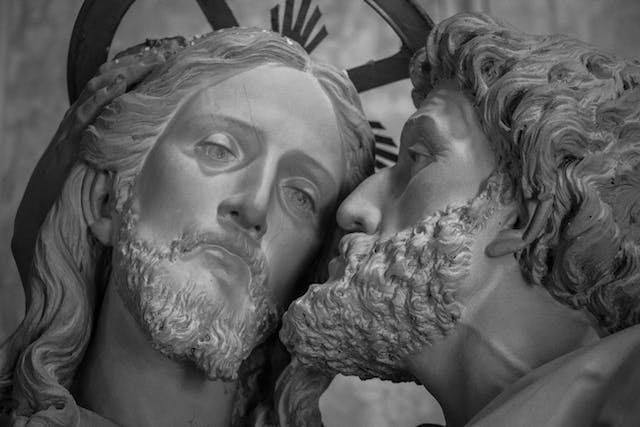How did Jesus deal with betrayal?

Betrayal is a painful experience that many people encounter in their lives. Jesus, too, faced betrayal by one of His closest disciples, Judas Iscariot. Examining how Jesus dealt with betrayal provides valuable insights into forgiveness and healing in the face of betrayal.
Finding Forgiveness and Healing in Betrayal
Judas’ Betrayal – Matthew 26:47-50
“While he was still speaking, behold, Judas, one of the twelve, came, and with him a great multitude with swords and clubs, from the chief priests and elders of the people. Now he who betrayed him gave them a sign, saying, ‘Whoever I kiss, he is the one. Seize him.’ Immediately he came to Jesus and said, ‘Hail, Rabbi!’ and kissed him. Jesus said to him, ‘Friend, why are you here?’ Then they came and laid hands on Jesus and took him.”
- In this poignant moment, Judas betrays Jesus with a kiss, identifying Him to the authorities for arrest. Instead of responding with anger or condemnation, Jesus addresses Judas as “friend” and questions his actions.
Lessons from Jesus’ Response:
- Choose Forgiveness: Jesus’ response exemplifies the choice of forgiveness over bitterness or retaliation. He extends grace even in the face of betrayal.
- Address the Heart: Jesus’ question, “Why are you here?” goes beyond the surface and addresses the deeper motivations and intentions of the heart. It encourages us to seek understanding in the face of betrayal.
The Kiss of Betrayal – Luke 22:48
“But Jesus said to him, ‘Judas, do you betray the Son of Man with a kiss?'”
- In this concise but powerful response, Jesus highlights the irony of using a symbol of affection, a kiss, to betray Him.
Lessons from Jesus’ Response:
- Recognize the Irony: Jesus’ question serves to highlight the irony and hypocrisy of using a gesture of friendship and intimacy to betray Him. It reminds us to be discerning and aware of such deceptions.
Peter’s Denial – Luke 22:61-62
“The Lord turned and looked at Peter. Then Peter remembered the Lord’s word, how he said to him, ‘Before the rooster crows you will deny me three times.’ He went out and wept bitterly.”
- Although not a direct response to betrayal, this passage highlights Peter’s denial of Jesus, which could be seen as a form of betrayal. Jesus’ loving gaze at Peter after his denial leads to Peter’s deep remorse and repentance.
Lessons from Jesus’ Response:
- Jesus’ Love Leads to Repentance: Jesus’ loving and knowing look at Peter’s denial ultimately leads to Peter’s repentance and transformation. It reminds us of the power of love and grace to bring about healing and restoration.
Jesus’ responses to betrayal, whether in the case of Judas or Peter’s denial, illustrate the principles of forgiveness, addressing the heart, and the potential for healing and transformation in the face of betrayal. While betrayal is painful, following Jesus’ example can lead to a path of forgiveness and restoration.




























